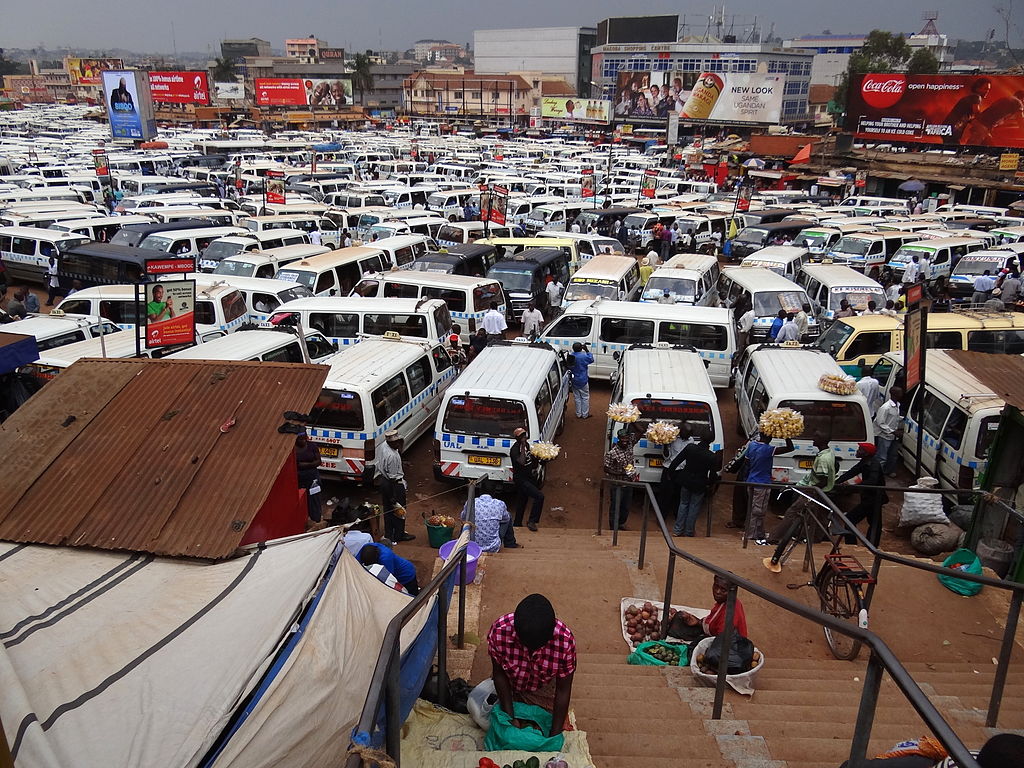
KAMPALA, Uganda — Standing in front of a van packed with passengers and luggage on the roof rack, taxi driver Abu Mugisha is glued to his smartphone — paying his taxes.
Scrolling down a list of options on his phone, he selects “pay bill” and “Kampala Capital City Authority.” In just a few minutes, his monthly fee for using the capital’s congested roads — 120,000 Ugandan shillings, or about US$35 — is all paid.
Until a couple of years ago, taxi fees had to be paid in person. It was enough of a hassle that many drivers skipped doing it, at the risk of having their vehicles impounded. Although really, impoundment was a risk whether they paid up or not. That’s because local tax administrators kept such bad records that mistakes happened all the time.
Both problems have improved with a new tax system called eCitie. The software keeps better track of registered taxpayers, reducing the chances that a driver who has paid the fee might see his vehicle taken away by mistake. And the mobile payment feature Mugisha uses is simple enough that the number of taxis registered to use it has doubled to more than 16,000. You can tell they’re registered by a special green, yellow or red sticker on the front of the vehicle.
“I used to forget to pay bills, and it used to take one hour,” Mugisha recalls. “But now I’m reminded all the time when I have a bill. And when I pay on the phone through mobile money, it’s five minutes. It’s very easy.”
The system is part of a larger push by the Kampala Capital City Authority, or KCCA, to streamline its revenue collections. Business licenses, property rates, hotel taxes and several other revenue sources are now managed through eCitie. Jennifer Musisi, KCCA’s executive director, calls eCitie “a powerful tool that has brought about convenience and efficiency.”
Musisi is trying to cultivate a local culture that sees paying taxes as a responsibility. Part of that bargain is delivering good customer service and competent local administration in return. It’s hard to create habits around paying taxes when it not only costs people money but also is a frustrating waste of time.
But Kampala’s revenue effort is about something even larger: building the capacity to sustain local governance.
Like many cities in Africa, Kampala has traditionally relied on central-government transfers for most of its budget to pay for schools, public health, waste management and other services. That is shifting as Uganda joins a decentralization trend aimed at moving more authority closer to the people at local levels of government. For Kampala, this means it’s more important than ever to strengthen those revenue streams the city itself controls — what fiscal experts call “own-source” revenues.
Those revenues are growing at an impressive rate. In 2011, KCCA collected about 30 billion Ugandan shillings, or US$8.9 million. By the fiscal year that ended last June, that figure had shot up to 110 billion shillings, or US$32.5 million This represents roughly one-third of the authority’s total budget.
Read the article on Citiscope



